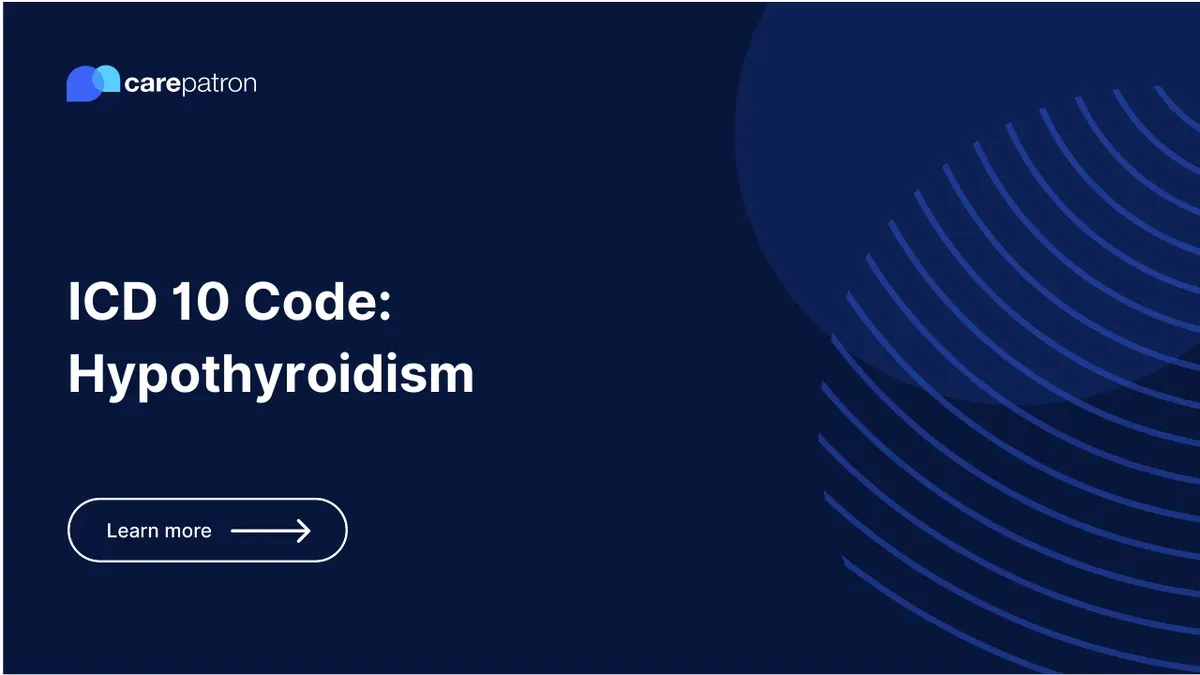
Hypothyroidism ICD-10-CM Codes
Understand the ICD-10 codes used for hypothyroidism, their relevance in medical billing, and how they represent various forms of this thyroid condition.
Use Code
Commonly asked questions
A hypothyroidism ICD code is used in medical billing and coding to classify diagnoses related to hypothyroidism. It's used when a healthcare professional diagnoses a patient with hypothyroidism.
Yes, hypothyroidism diagnoses are billable. The specific ICD code for hypothyroidism is used to bill insurance companies for the condition's diagnosis, treatment, and management.
The common treatment for hypothyroidism is hormone replacement therapy, typically using levothyroxine. This treatment aims to restore the balance of thyroid hormones in the body. The specific treatment plan may vary based on the patient's age, overall health, and the severity of the condition.
EHR and practice management software
Get started for free
*No credit card required
Free
$0/usd
Unlimited clients
Telehealth
1GB of storage
Client portal text
Automated billing and online payments
